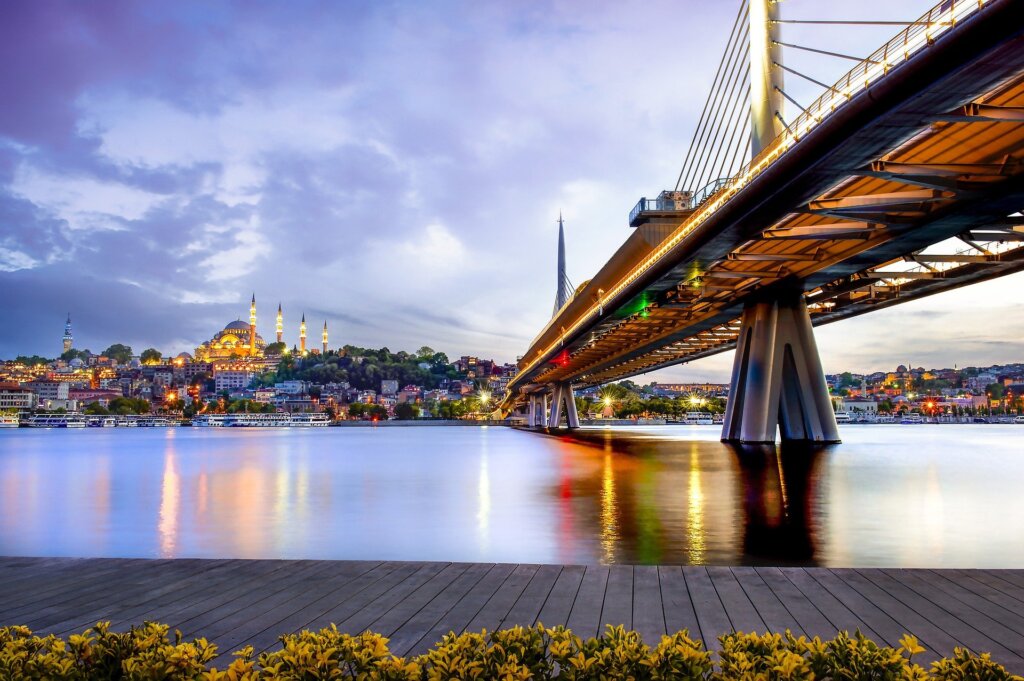
For the past few years, Turkey has been experiencing a middle power country’s dilemmas in its foreign policy. Especially since 2016, Turkey’s military activism has been on the rise in a number of issue areas ranging from the Syrian civil war and the Libyan crisis to the Azerbaijan-Armenia confrontation and the Eastern Mediterranean conflict. Turkey has achieved some successes on all of these fronts, too. However, the country is once again on the news concerning its diplomatic signals and efforts in the region and beyond, trying to reconcile with the United States, Israel, and the Gulf countries. This turn of events is closely connected to Turkey’s being a middle-ranked country in international politics. Specifically, the gap between Turkey’s expectations and capabilities has brought the country’s policymakers back into the realm of diplomacy and reconciliation in foreign policy. Thus, in order to flourish in regional and international politics, Turkey must find a balance between its military instruments and soft power politics. While Turkish policymakers need to continue with their support for and investment in the country’s thriving defense industry and be ready for military engagement when necessary, they also need to re-energize Turkey’s soft power politics, and revitalize the diplomatic path to improve the country’s position in various regional and international institutions and alliances.
Scholars have often characterized Turkey as a middle power in international politics, which is expected to be involved with regard to global issues, build effective coalitions based on normative principles, and act as a bridge between the North and the South. In the emerging multipolar world, though, where the U.S. hegemony seems to be in decline, middle powers today tend to act more independently in their foreign policies and find “more room to maneuver through a variety of instruments and policies”.
As an emerging middle power, Turkey became a prominent actor in regional and international politics with its soft power from the early 2000s until recently. It gained a significant amount of visibility through efforts including, but not limited to, its presence in the United Nations Security Council as a non-permanent member between 2009-2010, its involvement in the resolution of the Iranian nuclear issue with Brazil, and acting as a mediator in the Israeli-Syrian talks. However, especially since 2016, Turkey has been pursuing a foreign policy based on hard power and military activism on several fronts.
Winds of Change
Analysts have come up with different arguments as to why Turkey has increased the use of military tools in its foreign policy in recent years. While some have emphasized the rise of a conservative-nationalist alliancebetween the ruling Justice and Development Party (Adalet ve Kalkınma Partisi-AKP) and the Nationalist Movement Party (Milliyetci Hareket Partisi-MHP) as well as President Recep Tayyip Erdogan’s efforts to maintain his popularity at home, others have directed attention to the insufficiency of soft power tools in a changing regional order, the recent strides in the Turkish defense industry and the implications of the 2016 Coup attempt. Some also mentioned the power vacuum created by the “diplomatic divestment of the United States from Europe”. Without a doubt, all of these factors have contributed to the emergence of a more hardline direction in Turkish foreign policy. However, there is also a more general framework within which we can place this hard power stance in Turkish foreign policy: the recent gradual dissolution of the Western liberal international order.
Since the end of World War II, the liberal international order has been characterized by the institutions and alliances formed under the United States’ leadership. However, in recent years the principles and norms of this order have received significant damage. Developments such as the Russian annexation of Crimea in 2014, the murder of Jamal Khashoggi in the Saudi Consulate in Istanbul in 2018, and President Trump’s recognition of Israeli sovereignty over the Israeli-occupied Golan Heights in March 2019 are but a few examples of how some of the basic norms of the liberal international order have been blatantly violated in the past few years. Relative Western silence or inaction in the face of these developments contributed to a decrease in the emerging middle powers’ willingness to act as normative actors and engage in global governance mechanisms. During this period, Turkish officials also found themselves focused more on Turkey’s immediate neighborhood, dealing with the country’s security challenges through Realpolitik lenses and hard power tools rather than on diplomatic and multilateral efforts to address global issues.
Turkey’s military engagement in several theaters of conflict
In 2016, 2018, and 2019, Turkey has carried out military interventions in northern Syria as part of its struggle against the Kurdistan Workers’ Party (Partiya Karkerên Kurdistanê — PKK) and the Islamic State of Iraq and the Levant (ISIL). In the same time period, Turkey’s counterterrorism efforts also involved the Turkish Armed Forces’ cross-border military operations in northern Iraq. In November 2019, Turkey signed a maritime agreement with the UN-recognized Government of National Accord in Libya at the dismay of Egypt and Greece, and in summer 2020, provided military support for this Tripoli-based government in its military struggle against Khalifa Haftar forces backed by Saudi Arabia, Egypt, and the United Arab Emirates. Furthermore, in the most recent Azerbaijan-Armenia conflict in late 2020, Turkish leaders provided “unequivocal support” for the Azeri side. They declared that Turkey would “stand by Azerbaijan whichever way it prefers”. Turkish military engagement in these areas had a significant impact on the ground, too. For example, Turkey prevented the formation of a Democratic Union Party (Partiya Yekîtiya Demokrat — PYD)-dominated Kurdish corridor in northern Syria, which it identifies as an existential threat due to the PYD’s and its armed wing People’s Protection Units’ (Yekîneyên Parastina Gel — YPG) ties with the PKK. At the same time, it shifted the balance of forces in favor of Fayez Al-Sarraj and Haidar Aliyev governments in Libya and Azerbaijan, respectively. Turkey’s military engagement in these places also turned into an opportunity to showcase the developments in the country’s defense industry, especially its “homemade armed drones”.
As a middle power, Turkey cannot pursue an entirely independent foreign policy, irrespective of the global players, such as the United States and China, and regional players, such as Russia.
However, there is a limit to what Turkey can achieve militarily and politically on its own in these conflict zones and other issue areas. As a middle power, Turkey cannot pursue an entirely independent foreign policy, irrespective of the global players, such as the United States and China, and regional players, such as Russia. Turkish officials received a green light or at least a yellow light from the United States and/or Russia before they opted for active military engagement in the abovementioned areas. Furthermore, it seems that Turkish policymakers have not been able to turn all of their battlefield achievements into political successes so far.
Back to diplomacy and reconciliation
Thus, it is not surprising to observe Turkish officials once again turning back to the path of diplomacy and reconciliation these days. Turkish government’s policy to appoint a new ambassador to Israel after the 2018 decision to withdrew its diplomat in the midst of the U.S. Embassy’s move to Jerusalem, Turkish Minister of Foreign Affairs Mevlut Cavusoglu’s announcement in late 2020 that Turkey and Egypt are working on a rapprochement in their bilateral relations, Turkey’s positive signals to the Biden Administration, President Erdogan’s declaration that Turkey is “ready to put our relations back on track” in a meeting with the European Union ambassadors in January 2021, all demonstrate that Turkey is embarked on a new agenda of diplomacy, and reconciliation in its relations with other regional and international actors.
There is no doubt that the gradual decline of the Western liberal international order has turned Turkey’s attention away from normative principles toward hard power instruments. However, Turkey will be a more successful actor in its region if it combines the its military achievements with diplomatic openings. Being aware of its strengths and weaknesses as a middle power, while Turkish policymakers should continue with their support for and investment in the country’s thriving defense industry and be ready for military engagement when necessary, they also need to re-energize Turkey’s soft power politics, and to revitalize the diplomatic path in order to improve the country’s position in various regional and international institutions and alliances.
_______________________________________________________________________________________________

Özlem Kayhan Pusane is an Associate Professor of International Relations at Işık University, İstanbul, Turkey. Her research interests include security studies, civil-military relations, counterinsurgency, counterterrorism, and Turkey’s security and foreign policy.
To cite this work : Ozlem Kayhan Pusane, “Turkey as a Middle Power in International Politics: Betwixt and Between a Militarized Foreign Policy and Active Diplomacy”, Panorama, Online, 18 February 2021, https://www.uikpanorama.com/blog/2021/02/18/turkey-as-a-middle-power-in-international-politics-betwixt-and-between-a-militarized-foreign-policy-and-active-diplomacy/
Copyright@UIKPanorama.All on-line and print rights reserved. Opinions expressed in this work belongs to the author(s) alone, and do not imply endorsement by the IRCT, the Editorial Board or the editors of the Panorama.


